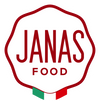Casu Marzu illegal? Everything you need to know about maggot cheese
Casu Marzu is one of the best known cheeses and at the same time one of the most discussed in the world. There are many questions that are asked about this Sardinian excellence. Casu Marzu banned? Dangerous Sardinian cheese with worms? What is its flavor?
This dairy product with a creamy consistency is also called cheese with worms , because its properties derive from the nesting of the larvae of the Piophila casei, a fly that uses the cheese substrate in its biological cycle.
Precisely this peculiarity would make Casu Marzu dangerous; even in 2009 it was included in the Guinness Book of Records as the most dangerous cheese in the world.
But is it really so? Let's go deeper into the question, analyzing all the aspects related to the production of what has also been called the "cheese that moves".
What worms are there in Casu Marzu?
Casu Marzu is produced from pecorino cheese , which changes its consistency from hard to soft if the caesaria fly ( Piophila casei) lays its eggs in the form placed to age.
After hatching, the larvae colonize the cheese and use it as a growth substrate, until it is time for them to transform into insects, thus moving on to another phase of their life cycle.
What does maggot cheese taste like?
Cazu Marzu has an unmistakable taste that makes it a particularly valuable and unique product of its kind.
Creamy, soft, with sweet nuances accompanied by a spicy aftertaste and a strong smell: those who are fans of it could never stop exalting its qualities.
A common use is to spread it on a piece of bread, preferably slightly soaked carasau bread . The combination with a well-structured and decisive wine enhances its particular flavour.
How is maggot cheese made?
As we said previously, cheese with worms is obtained from the action of the larvae of Piophila casei which colonize the forms of pecorino, generally in the warmer months (ie in the spring and summer seasons).
The cheeses are left to mature outdoors or in ventilated rooms, so that the deposition of eggs inside them by the fly is a simple and natural process.
Sometimes, to facilitate the nesting of the eggs, holes are incised in the rind of the cheese placed to mature and then filled with oil, so as to make it less hard and thus facilitate the action of the insect.
The eggs hatch and give rise to the larvae, which act with their enzymes on the consistency of the cheese, transforming it from hard to soft and creamy.
What happens if you eat Casu Marzu?
Illegal Casu Marzu, dangerous Casu Marzu, forbidden Casu Marzu: these are often the terms that accompany the name of the Sardinian cheese with worms. But what is the truth, does this reputation have actual foundations?
That is, are there actual risks associated with its consumption? To date, there are no official cases that find contraindications, no disorder has been detected and full-blown based on the experiences of those who have eaten it.
Therefore, the reputation of the most dangerous cheese in the world would therefore be decidedly inappropriate, in any case excessive.
Since when is Casu Marzu illegal and why is Casu Marzu illegal?
Illegal maggot cheese? According to the general provisions of Italian law, which also complies with European Union regulations, the production and sale of Casu Marzu are illegal practices.
This is because there would be risks associated with ingesting larvae, which could cause damage to the body. However, we have said that there are no effective data on a possible threat to health deriving from the consumption of Casu Marzu.
The Sardinia Region has taken steps to counter these prohibitions, trying to protect Casu Marzu as its typical product of excellence.
In this sense, it has worked with the University of Sassari to identify processes for making cheese with Sardinian worms, which fully safeguard all aspects related to hygienic-sanitary standards to be respected during its production.
Furthermore, Cazu Marzu has been included in the list of traditional Italian agri-food products, in order to obtain exemptions from the current law which prohibits its production and consumption.
As admirers and speakers of many Sardinian excellences, and certainly Sardinian cheese , we can only cheer for a full rehabilitation of the most famous cheese with worms in the world.
Are you curious to try the flavor of Casu Marzu? Buy our Casu Marzu flavored cream cheese.

